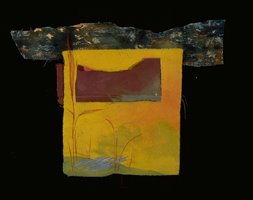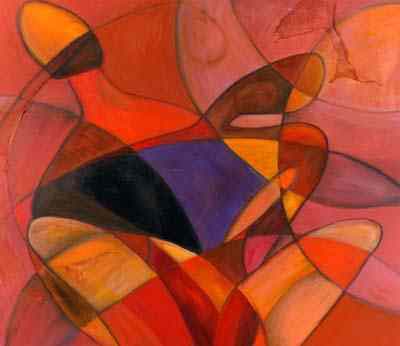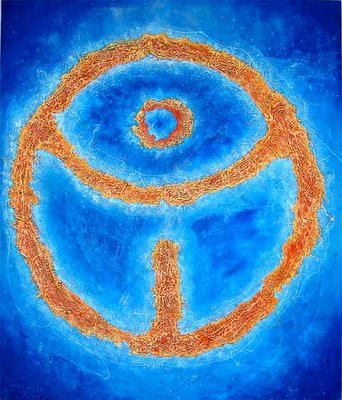Let the heavens be glad, and let the earth rejoice;let the sea roar, and all that fills it; let the field exult, and everything in it. Then shall all the trees of the forest sing for joy before the Lord; for he is coming, for he is coming to judge the earth. He will judge the world with righteousness, and the peoples with his truth. (Psalm 96: 11-13)Ancient Hebrew does not have a future tense (nor really a past and present). The language is not organized around time, as are most Western languages (and even modern Hebrew). Instead verbs indicate whether action is completed or not yet completed. "He is coming" captures this aspect of Hebrew, the action is ongoing.
In English we can use tense to imply something will be present in the future that is not yet present. This is more difficult in ancient Hebrew. In the last line of the psalm above the use of "will" gives the psalm a sense of the future that is not fully coherent with the Hebrew. Verbal form in Hebrew focuses instead on whether or not the action is continuing. "He is judging" is more consistent with the original.
God is coming. God is judging. God is acting. The verb continues. The Kingdom of Heaven is at hand, is unfolding, is becoming, is acting in the present. The God of Jesus and his forebearers is a great and continuing verb.
While I do not understand how or why, my post for Saturday, February 4 has disappeared. It is still accessible using the search function, but does not appear on the index. Below is what was posted yesterday.SATURDAY, FEBRUARY 04, 2006
I believe that I shall see the goodness of the Lord in the land of the living. Wait for the Lord; be strong, and let your heart take courage; wait for the Lord! (Psalm 27: 13-14)
Billions pray, "thy kingdom come, thy will be done, on earth as it is in heaven."
Jesus taught, "the kingdom of God is at hand" (Mark 1:15). The Greek implies something already present, something that can be embraced, or is embracing us.
The psalmist expects the goodness - joy, prosperity, and beauty - of God in the here and now. God is that which exists (or acts or chooses) in the past, now, and in the future.
The psalmist urges us to wait. But it is possible that God - and all that God intends - is already with us.God is waiting for us to see, to recognize, and to accept the beauty of God that has already been given to us. The wait is over.










